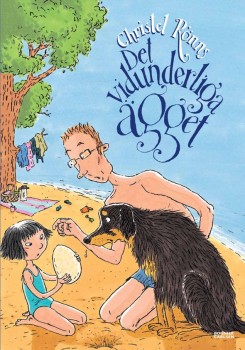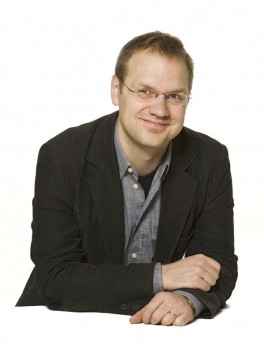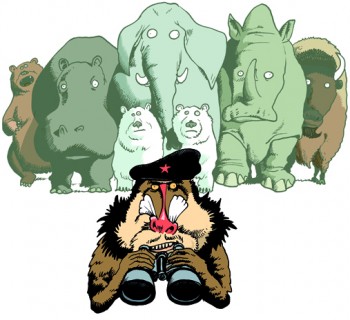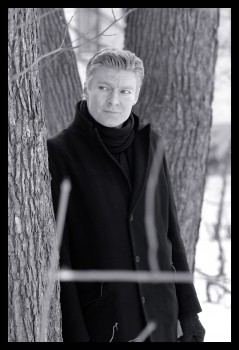Search results for "lola rogers/www.booksfromfinland.fi/2012/04/movies-and-mores/2010/02/let-us-eat-cake"
How to peel an orange
30 December 2002 | Fiction, Prose
Extracts from the novel Auringon asema (‘The position of the sun’, Otava, 2002)
There are times when God rules. Then logic is burned on bonfires and left to rot in damp prisons with rats. There are times when logic rules. Then God is burned in the squares and his houses are made into schools. There are times when attempts are made to demonstrate that God and logic can live in the same place and that they are, in fact, the same thing, but those times are truly strange times. And there are times when God and logic live side by side but in different places, like adult siblings who cannot live in the same place but nevertheless get on well together. When my father and my mother loved each other, they were ruled by God, and there was no logic in it, none at all. More…
Finlandia Junior Prize 2012
5 December 2012 | In the news
 The Finlandia Junior Prize 2012 went to the illustrator and writer Christel Rönns for her book Det vidunderliga ägget (‘The extraordinary egg’, Söderströms & BonnierCarlsen).
The Finlandia Junior Prize 2012 went to the illustrator and writer Christel Rönns for her book Det vidunderliga ägget (‘The extraordinary egg’, Söderströms & BonnierCarlsen).
The winner was chosen from the shortlist of six by the film director and actor Mari Rantasila. Awarding the prize, worth €30,000, on 29 November she said:
‘The book has masterly, original and clear illustrations that support the story; the drawings include amusing details. It is refreshing to read a story about a family that all pulls in the same direction.
‘Det vidunderliga ägget deals with important matters, in a way that is suitable for small children: toleration of difference and the difficulty of loss, underlining that difference is not frightening or negative.’
The following five books also made it to the shortlist: Nörtti: new game (‘The nerd: new game’, Otava), about a schoolboy, bullying and social media by Aleksi Delikouras, Tatu ja Patu pihalla (‘Tatu and Patu on the yard’, Otava), a new picture book in the series about two curious little boys by Aino Havukainen and Sami Toivonen, Hurraa Helsinki! (‘Hurrah Helsinki!’, Tammi), a picture book about Helsinki by Karo Hämäläinen and Salla Savolainen, Puhelias Elias (‘Talkative Elias’, Tammi), an illustrated story about a little boy and his parent’s separation by Essi Kummu and Marika Maijala, and Kirkkaalla liekillä (‘With a bright flame’, Robustos), about 15-year-old Maaria, who lives through difficult times, by Venla Saalo.
Helsinki Book Fair 2012
25 October 2012 | In the news
 The twelfth Helsinki Book Fair opens today at the Exhibition and Convention Centre. Last year the Fair attracted more than 80,000 visitors.
The twelfth Helsinki Book Fair opens today at the Exhibition and Convention Centre. Last year the Fair attracted more than 80,000 visitors.
During four days around 700 interviews and discussions with writers will take place on twelve stages, and there will be more than 300 exhibitors in the various fields of literature.
Author Jari Tervo has been nominated the Book Fair Club’s columnist: in his first contribution, entitled ‘Median myllyt’ (‘The mills of the media’) Tervo says, among other things:
‘During the last 30 years the amount of public attention directed at Finnish authors has probably multiplied by ten. How has it affected the sales of literature? Not at all. The sales haven’t multiplied by ten, or even doubled. Has the increased public attention affected the content of literature? I don’t think it has….
‘The media doesn’t churn authors in its mill because literature is so exceedingly important. To the media the authors are a biomass that is able to articulate a touch more juicily than the average celebrity. An author needs less editing. It’s as simple as that.’
This time the featured country is Hungary: the guest writers are György Spiró, Sandor Zsigmond Papp, Vilmos Csaplár, Péter Esterházy and Léda Forgó. There are 30 guests from 11 countries.
The prize Rakkaudesta kirjaan, ‘Out of love for the book’, was awarded posthumously to the writer, critic and editor Jarmo Papinniemi (1968–2012), who, according to the jury of literary experts was an exceptionally versatile professional working in the field of the arts.
Reference database ARTO
11 June 2010 | In the news
ARTO, a reference database of articles published in around 600 Finnish magazines and journals, created and updated by the National Library of Finland, is now available without charge and functions also in English.
For example, if you’d like to find out if there are any articles on Mika Waltari published in printed Books from Finland between 1967 and 2008, this is now possible.
(Please note that the articles themselves are not available through this database – if you would like to obtain copies of pieces from Books from Finland, for example, you will have to contact either the reprographic services at the National Library, or us: info@booksfromfinland.fi.)
The show must go on
30 June 2007 | Archives online, Fiction, Prose
Extracts from the novel Piru, kreivi, noita ja näyttelijä (‘The devil, the count, the witch and the actor’, Gummerus, 2007). Introduction by Anna-Leena Ekroos
‘I hereby humbly introduce the maiden Valpuri, who has graciously consented to join our troupe,’ Henrik said.
A slight girl thrust herself among us and smiled.
‘What can we do with a somebody like her in the group? A slovenly wench, as you see. She can hardly know what acting is,’ Anna-Margareta snapped angrily.
‘What is acting?’ Valpuri asked.
Henrik explained that acting was every kind of amusing trick done to make people enjoy themselves. I added that the purpose of theatre was to show how the world worked, to allow the audience to examine human lives as if in a mirror. Moreover, it taught the audience about civilised behavior, emotional life, and elegant speech. Ericus thought that the deepest essence of theatre was to give visible incarnation to thoughts and feelings. None of us understood what he meant by this, but we nodded enthusiastically. Anna-Margareta insisted that, say what you will, in the end acting was a childish game. Actors were being something they were not, just like children pretending to be little pigs or baby goats. More…
Arska
30 September 1982 | Archives online, Fiction, Prose
A short story from Kaksin (‘Two together’). Introduction by Pekka Tarkka
A landlady is a landlady, and cannot be expected – particularly if she is a widow and by now a rather battered one – to possess an inexhaustible supply of human kindness. Thus when Irja’s landlady went to the little room behind the kitchen at nine o’clock on a warm September morning, and found her tenant still asleep under a mound of bedclothes, she uttered a groan of exasperation.
“What you do here this hour of day?” she asked, in a despairing tone. “You don’t going to work?”
Irja heaved and clawed at the blankets until at last her head emerged from under them.
“No,” she replied, after the landlady had repeated the question.
“You gone and left your job again?”
“Yep.” More…
Jarmo Papinniemi in memoriam 1968–2012
9 October 2012 | In the news

Jarmo Papinniemi
The editor, literary critic and writer Jarmo Papinniemi has died of a sudden illness in Helsinki.
Two days later, the latest edition of Parnasso was published: Papinniemi became editor-in-chief of this august 60-year-old literary magazine in 2005. During his period as editor, the magazine’s readership increased, quite an achievement in the difficult world of periodicals.
Jarmo Papinniemi worked as a literary critic and as a news and arts reporter for Finnish Broadcasting Company from 1998 to 2005. He wrote and directed television documentaries, and was the author of numerous books on literature and music, including Aloittamisen taito (‘The art of beginning’, 2010, with Kaisa Neimala) and Sävelten siivillä (‘On the wings of music’, 2011), a study of the work of the composer Ilkka Kuusisto.
Jarmo was also a member of the Editorial Board of Books from Finland from 2002. He was a quick, industrious and knowledgeable reader and writer whose opinions were well grounded and expressed, and he was interested in an unusually wide range of culture. Cheerful, humorous, a connoisseur of music, Jarmo was a colleague with whom conversations were always enjoyable and thought-provoking; he will be greatly missed by all of us who worked with him.
The tower
31 December 1987 | Archives online, Fiction, Prose
A short story from the collection Torni (‘The tower’, 1987). Introduction by Erkka Lehtola
The dog came through the door first, a big, long-haired brute. He hadn’t said anything about it on the phone, but from the look on his face you could tell it was his and that he meant to take it with him into the forest.
He shuffled across the yard with his rubber boots on and a rucksack on his back. In one hand he held a camera tripod.
I rolled down the window.
‘Wait a minute,’ he said.
He walked behind the cars standing in the parking lot, over to his own car and opened the trunk. The dog twisted around his legs whining softly. He took something out and slammed the trunk shut. More…
One hell of a time
31 December 1997 | Archives online, Fiction, Prose
Extracts from Lanthandlerskans son (‘Country shopkeeper’s son’, Söderströms, 1997). Brooklyn Bridge, Christmas Eve: Otto, a Finland-Swede, attempts to start a new life in 1930s America, where swindlers and even gangsters can, he finds, be duped – even Al Capone. Otto’s grandson listens to his story on tape
I have always loved that sight. A city that you see from the air at night, all lit up. It’s’ beautiful – and at the same time so frightening. I don’t really know how to describe it.
Well, it was Christmas Eve. I was wandering around New York. I had eaten at an automat. Do you know what that is? They don’t exist any more, but in the Twenties and Thirties they were common in America. It’s a cafe, but they didn’t have any staff or waiters, instead the walls were full of little glass boxes where the food was on display. You could select what you wanted – sandwiches and pies and salads, anything. Then you put your nickels and dimes in a slot beside the box and the glass opened and’all you had to do was take out the plate. I was fond of the automats. I liked just sitting there and watching other people eat, no one bothered about you, you were left alone and that suited me. When I’d finished eating I went outside again and somehow or other I wandered upon to Brooklyn Bridge. There was a lot of traffic, people were on their way home. Well, just as I was walking there alone in the company of my thoughts I heard someone shouting ‘Help! Help me!’ More…
A slow passion
30 September 2007 | Fiction, Prose
A short story from the collection of short stories Hidas intohimo (‘A slow passion’, Gummerus, 2007)
I don’t want to interfere with it. If something comes of it, then something comes of it. You can’t interfere with time, or fate, or another person. Time ripens things on its own. Fate takes a longer view of things than people do. Like the prophet says, there is a time for every purpose, for my purposes and other people’s.
This garden cottage is a good place to watch everything quietly, a ringside seat for someone who doesn’t want to flail around getting smashed up. The potatoes bloom when it’s time for them to bloom, depending on the length of the summer, the weather, and the time they were planted. Their white and purple flowers are worthy of admiration– potato flowers are flowers, after all. But when the flowers are just opening, it’s not yet time to go digging around among the roots. You have to restrain yourself and wait until the tubers form. You have to wait until they’re finished blooming and the flowers are replaced by plumping green, poisonous berries – though not all potato varieties produce them. But if your fingers are really itching for them, you can poke into the dirt and grope around a little before it’s really time, feel for tubers and remove them carefully, patiently, leaving the plant undisturbed for the smaller ones to grow. If the groping turns up something, you can slip away and savour it, but you still have to wait before you can dig up the whole plant with its rootstock, its beautiful pure tubers heaved up onto the soil, as if Life were offering itself on a silver salver. Then you can have them. They’re ready. But it takes time. Many good things are destroyed by impatience. More…
The day of mourning
6 November 2014 | Fiction, Prose
Extracts from the novel Katedraali (‘The cathedral’, Teos, 2014). Introduction by Mervi Kantokorpi
I am here now, at this funeral; I’m sitting on a puffy rococo chair which stands in the corner of this large living room – hall – on a Berber rug, one of a series of four pieces of furniture. The fourth is a curly-legged table, painted matt white. I wriggle like anything, trying to rid myself of my too-tight shoes. Fish thrash their tails in the same way. The lady in the dry cleaner’s told me she hates fish. She said that clothes that smell of fish and are brought into her shop make her shake with loathing but also bring her satisfaction because she can wash the awful stench away.
My shoes are impossibly small. They pinch my feet worse every moment. My back aches, too, despite the painkillers. You can’t swallow pills forever, so I just try to find a better position and put up with it. Finally my shoes leave my feet. I kick them underneath the table so that they can’t be seen. I can breathe again. In my shoes I felt as if I were sinking under the ground.
My father once showed me the Stephansdom catacombs. Thousands of people were buried here, before that, too, was forbidden by someone, he said. More…
A day at the zoo
23 December 2009 | Children's books, Fiction

Extracts from the children’s book Zoo – eläimellinen tarina (‘Zoo – a bestial story’, WSOY, 2009, illustrated by Pertti Jarla)
The place: A zoo, once the property of the city, now privatised and accountable to corporate stockholders
The characters: The animals of the zoo, in particular Gandhi, a Sumatran tiger (false-teeth, poor vision, pacifist), Che, a male mandrill baboon (militant), and Mother Teresa, a hammer-headed bat (elderly); the zookeeper Sihvonen (stands up for the animals, recently fired); the new zoo director (whose main goal is to maximise profits); the shareholders’ committee (awaiting their earnings)
The action: after a demonstration in which all the animals played dead, the animals are staging a revolution to demand that Sihvonen be reinstated
![]()
The animals crowded into the foyer. The hallway was full of every kind of creature, with all of their skin, fur and feathers steaming in the warm indoor air. Che stood at the top of the the stairs, looked down at his troops, and gave the order in mime for everybody to be quiet.
‘Reconnaissance?’ he said, his voice subdued.
‘Ready!’ the leaf-tailed geckos announced.
‘Head in!’ Che commanded. More…
Profiles
2 October 2014 | Fiction, Prose
Rosa Liksom’s first book, in 1985, was a collection of short prose; she has also written novels, children’s books, plays, comic and picture books. Her new book, Väliaikainen (‘Temporary’, Like, 2014) – a return to her signature very short prose – features beasts, machines and men
He’s there in the living room. We’ve gotta be very quiet. I left the computer on, and the reading lamp. I’ll go in and turn them off, quietly. Or the computer at least. I can watch Emmerdale on the little tv in the kitchen. You wait here. OK, I turned off the computer but I left the lamp on so I wouldn’t wake him up. I put his nap blanket over him. He’s laying on his left side now. That’s good. Whenever he wakes up on his right side he gets awfully grumpy. Let’s go in the kitchen so we don’t disturb him. The poor guy. It’s been hours since he’s had a good sleep. You know, I think it’s the depression again. It started on Monday when he was supposed to go to his guide’s job.He didn’t taste his breakfast, even though I brought it to him in bed. I had to go to the hospital, my shift was starting, and he just laid there in the bedroom with his eyes open… I don’t know how long it’s gonna last this time. Last month he was depressed for three days. I think it’ll pass more quickly this time because he’s napping a little bit, and licking his paw now and again.
European Union literature prizes 2010
8 October 2010 | In the news

Riku Korhonen. Photo: Harri Pälviranta
With his novel Lääkäriromaani (‘Doctor novel’, Sammakko, 2009), Riku Korhonen (born 1972) is one of the 11 winners of the 2010 European Union Prize for Literature, worth €5,000 each. The winners were announced at Frankfurt Book Fair on 6 October.
The European Commission, the European Booksellers’ Federation (EBF), the European Writers’ Council (EWC) and the Federation of European Publishers (FEP) award the annual prize, which is supported through the European Union’s culture programme. It aims to draw attention to new talents and to promote the publication of their books in different countries, as well as celebrating European cultural diversity. Authors who have published two to four prose works during the last five years and whose work has been translated into two foreign languages at the most are eligible for the prize.
Korhonen has published two novels, a collection of short prose and a collection of poetry. Read translated extracts, published in Books from Finland in 2003, from his first novel, Kahden ja yhden yön tarinoita (‘Tales from two and one nights’, 2003) here. More…
